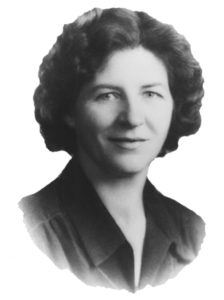INFP personality types seek to live in accordance with their inner core of values, and have insight into what is really important to others.
Note: This is a resource page on INFP - there are 16 Types of MBTI personalities. Find out which are you. This resource page is frequently referred to in our MBTI Teambuilding Workshops to help participants get more information about their MBTI Type.
INFP (introversion, intuition, feeling, perception) is a four-letter abbreviation for one of the Myers-Briggs Type Indicator’s 16 personality types. The INFP personality type is frequently referred to as a “idealist” or “mediator” personality type. People with this personality type are typically introverted, idealistic, creative, and motivated by high values.
INFPs care deeply about making the world a better place. They are interested in learning more about themselves and how they fit into the world, as well as how they can best help others. People with this personality type spend a lot of time thinking about their own life purpose and how they can best use their skills and talents to serve humanity.
Famous INFP Person

Johnny Depp is the quintessential example of an INFP actor. He is a definite introvert (the man bought an island to get some peace and quiet) and has the amazing ability to create his characters from scratch. Even when given an inspiration for a certain role, he still contributes to it with his signature imagination and style. It is exactly his elaborate imagination that gives him away as an INFP. If we take Captain Jack Sparrow for example, we can see how he contributed to the role with lots of small details, like the drunken swagger and the cool rocker style.
COMPATIBILITY WITH INFP
INFP is the ESTJ’s polar opposite personality type. INTP and ENFJ are two other personality types that are similar.
Key INFP Characteristics
INFPs are introverted, quiet, and reserved people. They prefer interacting with a small group of close friends because social situations drain their energy. While they prefer to be alone, this should not be confused with shyness. 2 Instead, it simply means that INFPs get more energy from alone time. They must, on the other hand, expend energy in social situations.
INFPs typically rely on intuition and are more concerned with the big picture than the finer points. They can be quite meticulous about things that are important to them or projects they are working on, but they tend to ignore mundane or boring details.
INFPs place a premium on personal feelings, and their decisions are influenced more by these concerns than by objective data.
INFPs prefer to keep their options open when making decisions. They frequently postpone important decisions in case something about the situation changes. Decisions are usually made based on personal values rather than logic.
INFP strengths
They enjoy assisting others in their growth and inner development so that they can reach their full potential. INFP people enjoy problem-solving creativity and making moral commitments to what they believe in.
Interesting, one of the originators of MBTI is an INFP

Isabel Briggs Myers
Isabel is the developer of the 16-personality type test (along with her mother). She also happened to have an INFP personality.
INFPs’ potential development areas
INFPs may find it difficult to speak up in meetings, leading others to believe they are uninterested or have nothing to contribute. They run the risk of failing to persuade others of the value of their ideas.
INFP Personal Relationships
Because INFPs are idealists, they have high expectations, including in relationships. They may have an idealized image of their ideal partner in their minds, which can be a difficult role for any individual to fill.
INFP personality types have a strong concern for others. However, as introverts, they can be difficult to understand. They tend to become very close and deeply committed to the few people with whom they form close relationships.
INFPs dislike and try to avoid conflict as well. When conflicts or arguments do arise, they usually focus on how they feel rather than the specifics. INFPs may appear overly emotional or even irrational during arguments. They can, however, be effective mediators by assisting others involved in a conflict to identify and express their feelings.
It can be difficult for others to get to know INFPs because they are so reserved and private. They are very devoted to their close friends and family and place a high value on their loved ones’ feelings and emotions.
An INFP’s energy is primarily focused inward and is characterized by intense feelings and strong values. They are very loyal to the people they care about, as well as to their beliefs and causes.
INFP Career Options
INFPs thrive in jobs that allow them to express their creativity and vision. While they work well with others, they prefer to work alone most of the time.
INFPs are highly creative, artistic, and spiritual. They are often fluent in language but may prefer to express themselves through writing rather than speaking. 5
INFPs become passionate about advocating or defending their beliefs because they have strong ethics and values. While they are passionate about their own values, they are also curious about others and are willing to listen to and consider all sides of an issue. INFPs are likely to be attracted to professions in counselling and human development, as well as within the arts and writing.
Suitable careers for INFPs include Social workers, teachers, counsellors, graphic designers, librarian, psychologist, writer, physiotherapist etc.
Contact us for MBTI Leadership Development or MBTI Team Building Workshop or MBTI LunchTime Talk or one to one executive coaching
To find out more about MBTI Types: Read Resource Page on 16 MBTI Types
For detailed reading of each of the 16 MBTI types, please click below. Enjoy!
